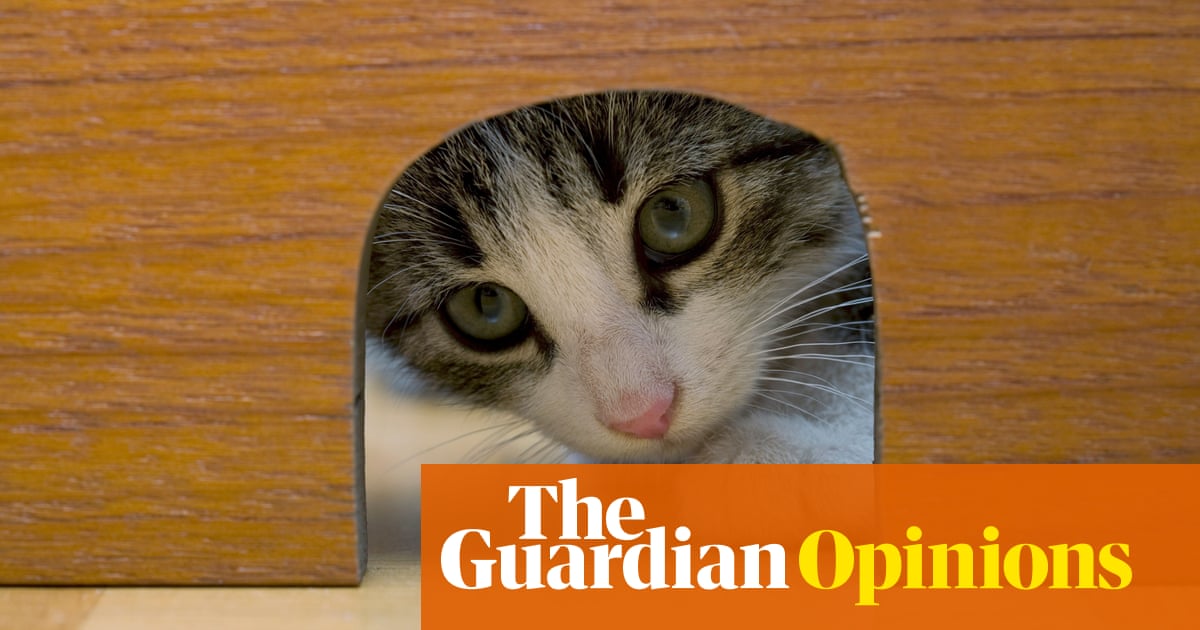- March 25, 2022
- No Comment
- 5 minutes read
Yes, your dog can go vegan – but cats are natural born killers – The Guardian

With plant-based diets on the rise, it’s natural to reconsider what’s going into pets’ food bowls. But some animals may not take to vegetables as readily as others
Veganism is on the rise for pets, just as it is for humans. One UK dog food brand, Butternut Box, has launched its first meat-free meal, Ready Steady Veggie, after a survey found that 71% of its customers were keen on a vegetable-based meal for their pets once a week.
It’s not surprising that many people are reviewing their pets’ diet: if you have made a principled decision to reduce or stop your own meat consumption, it seems odd to pile your pets’ dinner bowls full of animal products. However, it’s one thing to make a personal decision about your own diet; when deciding on behalf of another creature, you need to be certain that you are not compromising their health or welfare.
As the British Veterinary Association president, Dr Justine Shotton, tells me: “Under the UK’s animal welfare acts, pet owners have a duty of care towards their pet to ensure that their five welfare needs, including an appropriate diet, are met. Owners could be prosecuted for causing suffering to their pet through inadequate diet, so it is important to talk to a vet first.”
So can our pets safely become vegetarians or vegans?
For dogs it’s relatively straightforward, compared with their complex feline cousins (as is generally the case). Dogs are omnivores, and as long as their diet is complete and balanced they can be vegetarian or even vegan. This does need to be undertaken with care: you can’t just start to feed them pasta and tomato sauce with broccoli and carrots on the side. You need to do your research to ensure that their diet meets all of their needs, including protein, carbohydrate, fats, vitamins, minerals and fibre. The easiest and safest approach is to buy a commercially manufactured complete vegetarian or vegan dog food that has gone through feeding trials. Such products are formulated by professional nutritionists, and are legally obliged to fulfil specific nutritional criteria.
Cats are different: as obligate carnivores, it’s far more difficult for them to remain healthy without eating meat. Their anatomy – ie their teeth and digestive tracts – and metabolism have evolved to obtain nutrition from small prey such as rodents and birds. While a cat’s physical anatomy can adapt (cats are able to consume, digest and absorb plant-based food), a cat’s energy-creating metabolic processes cannot: felines need specific groups of nutrients that are commonly found only in meat.
For starters, cats have a higher protein requirement, with an absolute need for two specific amino acids (the individual units that combine to form proteins). One of these, taurine, is only found naturally in meat but can be synthetically manufactured from chemicals of non-meat origin. The other is arginine, which is common in meat but can also be found in specific plant sources. If feeding a non-meat diet to a cat, careful supplementation of these two amino acids is essential.
Secondly, a cat’s diet must include arachidonic acid, an essential fatty acid that is usually found only in animal tissue. A soil fungus can be used to manufacture a vegan version of arachidonic acid, and this can be used to supplement commercial vegan cat food. They also have meat-linked vitamin needs, including a preformed version of vitamin A that is only found naturally in meat, and also vitamin B12. Synthetic supplements of these nutrients are added to commercial vegan cat diets to stop them becoming seriously ill.
supposedSo if you are considering a vegan diet for your cat, you really do need to consider the risk of harm that you could cause by forcing a naturally meat-eating animal to eat a diet that their body is not designed to consume. You then need to choose the diet carefully, working under the guidance of a nutritional specialist. It is also worth considering that cats are natural hunters and carnivores – if they are not getting meat at home, they may well go out and get it themselves anyway.
As for the carbon impact of substituting plant-based food for meat, there is an obvious benefit (plant production produces less greenhouse gas than meat production). However there is a nuance here: traditionally, pet food is manufactured using byproducts from abattoirs, rather than the prime meat cuts used for human consumption. Arguably, pet food production is already sustainable, in that it finds a use for meat products that might otherwise be discarded. The increasing demand for human-type pet food, using better quality ingredients (eg fillet steak instead of cows’ feet) is changing this sustainable model. There is, of course, another environmentally friendly option available now for dogs and cats: insect-based nutrition. But that’s an article for another day.
Dr Pete Wedderburn is a vet in County Wicklow, Ireland

